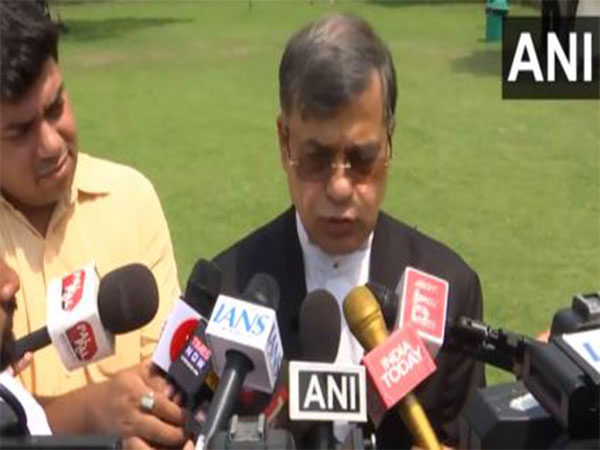New Delhi [India], May 15 (ANI): After President Droupadi Murmu questioned the Supreme Court’s ruling that imposed deadlines for Governors and the President to decide on state Bills, senior advocate Siddharth Luthra on Thursday said the matter raises serious concerns about federalism and citizens’ right to governance.
Speaking to reporters, Luthra said the key constitutional issue is whether constitutional authorities like Governors or the President can delay or indefinitely hold back laws passed by duly elected state governments.
He said, “…This reference to my mind is to determine what is the way going forward, to what extent the Supreme Court will direct governors and presidents to act, to the extent that they will determine and sit over the jurisdictions of governors and presidents. The issue today is – can a governor or the President sit over a legislation? Can it render a governance null and void? It is an issue about federalism and also about how we are going to deal with the rights of citizens to have governance. If we have constitutional authorities obstructing or nullifying the process of making laws by the governance, then are we not depriving the citizens of governance?”
Former Union Law Minister Ashwani Kumar also commented on the issue, saying, “President of India has done well in making the reference.” He added that there are differing views on the matter, and the Supreme Court’s advisory opinion will help bring clarity.
“There are two views on the matter – The President of India has done well in making the reference. A constitutional bench of the Supreme Court will hopefully return the advisory opinion, and according to that advisory opinion, things will become clear. I think there has to be a way out of what is appearing to be a conflict between the judiciary and the executive, which is not good for the country,” Kumar told ANI.
He noted that this is not just a legal issue, but a significant political development as well.
“This is a very important constitutional and political development. The reference the President has made to the Supreme Court touches upon a very fundamental question about India’s democracy, namely, the boundaries of power between the judiciary and the executive. There has been serious discussion in the country after the SC delivered its judgement on the question,” Kumar added.
President Murmu’s concerns came after the Supreme Court’s April 8 verdict in the Tamil Nadu Government versus Governor case, where it set deadlines for Governors and the President to decide on state Bills.
In her reference, President Murmu said the Constitution does not mention any time frame for such decisions. She cited Article 200, which outlines the Governor’s powers and procedures for dealing with Bills, including referring them to the President. However, it does not specify a timeline.
Similarly, she pointed out that Article 201, which deals with the President’s powers regarding assent to state Bills, also does not include any deadlines or time limits for action. (ANI)
Disclaimer: This story is auto-generated from a syndicated feed of ANI; only the image & headline may have been reworked by News Services Division of World News Network Inc Ltd and Palghar News and Pune News and World News
HINDI, MARATHI, GUJARATI, TAMIL, TELUGU, BENGALI, KANNADA, ORIYA, PUNJABI, URDU, MALAYALAM
For more details and packages
















